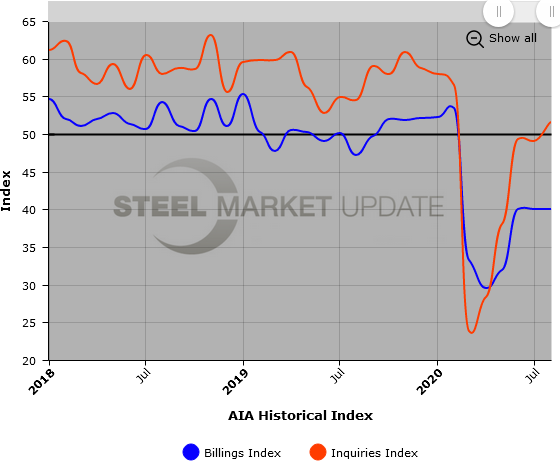Market Data

September 23, 2020
ABI Unchanged for a Third Month
Written by Sandy Williams
The Architecture Billings Index remained stuck at a score of 40 for the third consecutive month in August, indicating a prolonged decline in billing activity at architecture firms. The new project inquiries index provided a glimmer of optimism, rising for the first time since February to a positive score of 51.5. The value of new design contracts rose as well but remained below the 50 neutral point at 46.0.
Firms that specialize in multifamily residential construction noted the first sign of growth since the pandemic began, however, the commercial industrial sector remained very weak. By sector, the indexes for August were: multi-family residential, 49.4; mixed practice, 41.9; institutional, 40.2; and commercial/industrial, 35.5.
“Unfortunately, since the start of the COVID-19 pandemic, many architecture firms are finding fewer inquiries that convert to billable projects,” said American Institute of Architects chief economist, Kermit Baker. “While fewer firms reported declining billings in August than during the early months of the COVID-19 pandemic, the fact that the score has been unchanged for the last three months shows that the recovery from this downturn is not progressing at the pace we had hoped to see.”
Scores across all regions remained in contraction in August with the Midwest highest at 41.7 and the Northeast lowest at 33.9. The averages in the South and West were 41.6 and 41.3, respectively.
Below is a graph showing the history of the AIA Architecture Billings Index and Inquiries Index. You will need to view the graph on our website to use its interactive features; you can do so by clicking here. If you need assistance logging in to or navigating the website, please contact us at info@SteelMarketUpdate.com.








